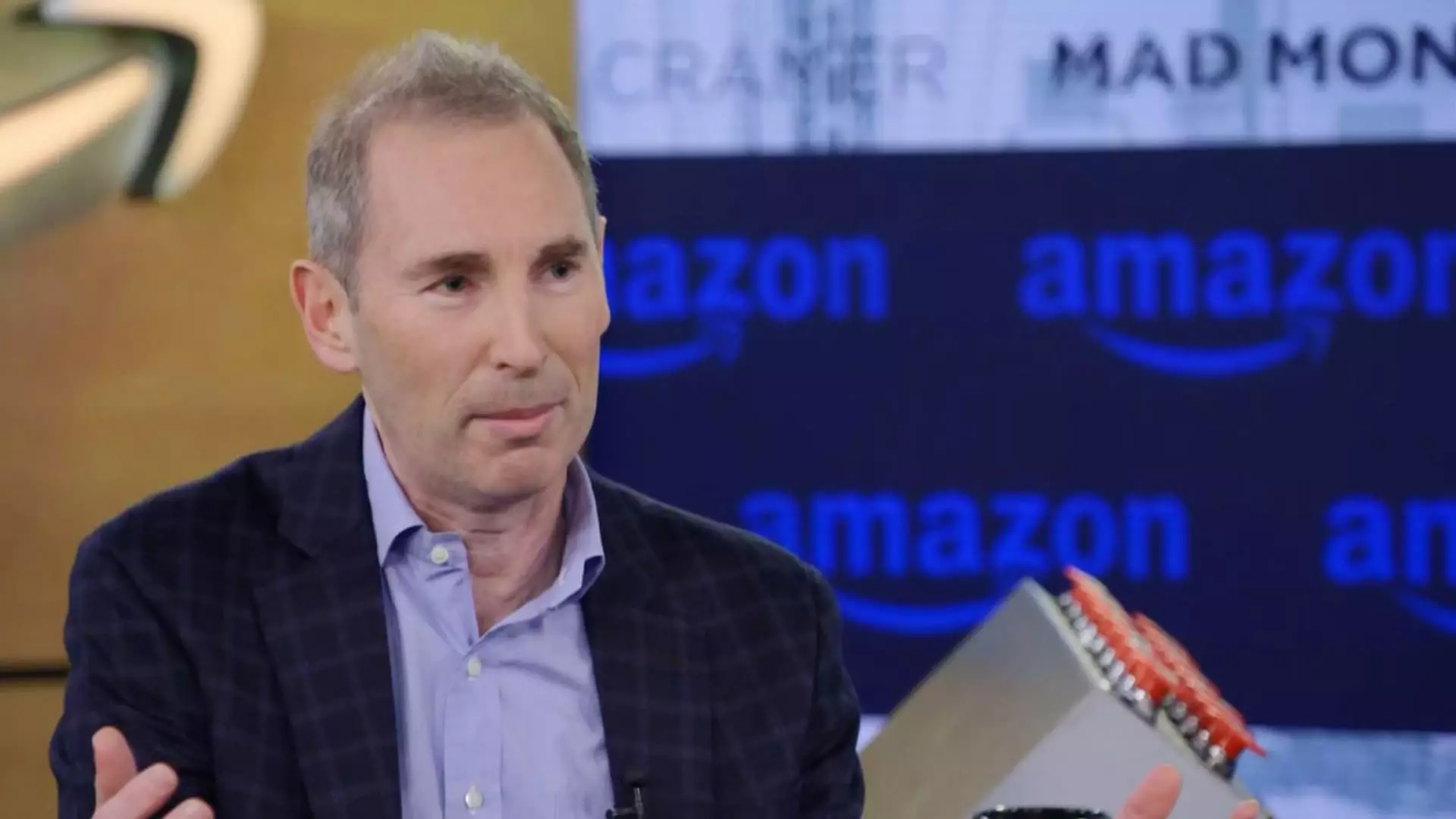In an era where technological advancement is accelerating at an unprecedented rate, Amazon CEO Andy Jassy’s recent assurances to investors during the company’s third-quarter earnings call reflect a strategic vision that seeks to quell doubts regarding the substantial investments being poured into generative artificial intelligence (AI). Jassy is navigating a complex financial landscape, and his focus on the profitability of Amazon Web Services (AWS) acts as a cornerstone for justifying these bold expenditures.
To effectively communicate confidence in generative AI investments, Jassy highlighted the successful trajectory of AWS, which has emerged as a vital profit center for Amazon. Even though the costs associated with building data centers are significant, AWS has repeatedly demonstrated its capability to yield impressive operating income and free cash flow. Jassy’s assurances that similar financial success is anticipated from generative AI investments encapsulate a fundamental belief in the long-term potential of transformative technologies: “I think we’ve proven over time that we can drive enough operating income and free cash flow to make this a very successful return on invested capital business,” he stated, aligning generative AI with the past successes of AWS.
This comparison is crucial, as it situates generative AI within a familiar context for investors—past profitability. However, while AWS’s success provides a template for expectation, the AI landscape presents unique challenges and rapid fluctuations in market demand, which Jassy must navigate carefully. His confidence hinges on the premise that, like AWS, the generative AI market will stabilize and mature, yielding profits that surpass current investments.
During the third quarter, Amazon’s capital expenditure surged dramatically, reaching $22.6 billion—a staggering 81% increase from the previous year. This funding is earmarked for infrastructure development, particularly focusing on data centers, networking equipment, and hardware specifically tailored for generative AI applications. Jassy went on to reveal that the company anticipates spending a remarkable $75 billion on capital expenditures in 2024, with even higher numbers expected in 2025. This aggressive spending underscores Amazon’s commitment to positioning itself as a leader in the burgeoning field of generative AI technology.
This significant investment aligns with a trend observed across the tech industry, where major players are strategically ramping up spending to meet the burgeoning demand for AI tools and infrastructure. However, such a rapid escalation in expenditure raises pertinent questions among investors regarding cash flow management and the timeline for reaching profitability in these new ventures.
What adds complexity to Amazon’s situation is the competitive landscape. Companies like Meta and Microsoft have also reported increases in capital expenditures in response to the escalating demand for AI. Meta’s CEO Mark Zuckerberg expressed satisfaction with his team’s progress and similar concerns arose from Microsoft regarding their investment in OpenAI. Alphabet’s warning about anticipated capital spending growth further emphasizes the urgency and scale of AI investments across the tech sector.
For Amazon, the ongoing development of generative AI products—ranging from services for enterprises to enhancements in their marketplace offerings and advertising programs—illustrates an active commitment to innovation. Anticipating the launch of an enhanced version of Alexa that incorporates generative capabilities has generated additional excitement among shareholders. It represents Amazon’s attempt to pivot its established platforms into the evolving tech era and tap into new revenue streams.
While it’s challenging to pinpoint exact revenue figures from generative AI thus far, Jassy’s estimation of it reaching a “multi-billion-dollar revenue run rate” within AWS reflects a rapidly expanding market. The generative AI sector is reportedly growing more than three times as fast as AWS did during its early development stages—a promising sign that suggests Jassy’s optimism may be warranted.
Nonetheless, this bullish sentiment must be balanced with the caution that comes from navigating an unpredictable market. As Jassy stated, there exists a “once-in-a-lifetime opportunity” within the generative AI realm. Thus, it is integral for investors and stakeholders to remain vigilant and aware of the intrinsic market volatility, especially in the AI sector, where success can depend on a myriad of unforeseen factors.
Amazon’s commitment to investing heavily in generative AI under Jassy’s leadership sends a signal to the market about the company’s strategic foresight. While the road ahead may present challenges and uncertainties, Jassy’s consistent message of confidence emanates as Amazon continuously strives to harness the power of AI, all while assuring shareholders of robust future returns.


Leave a Reply